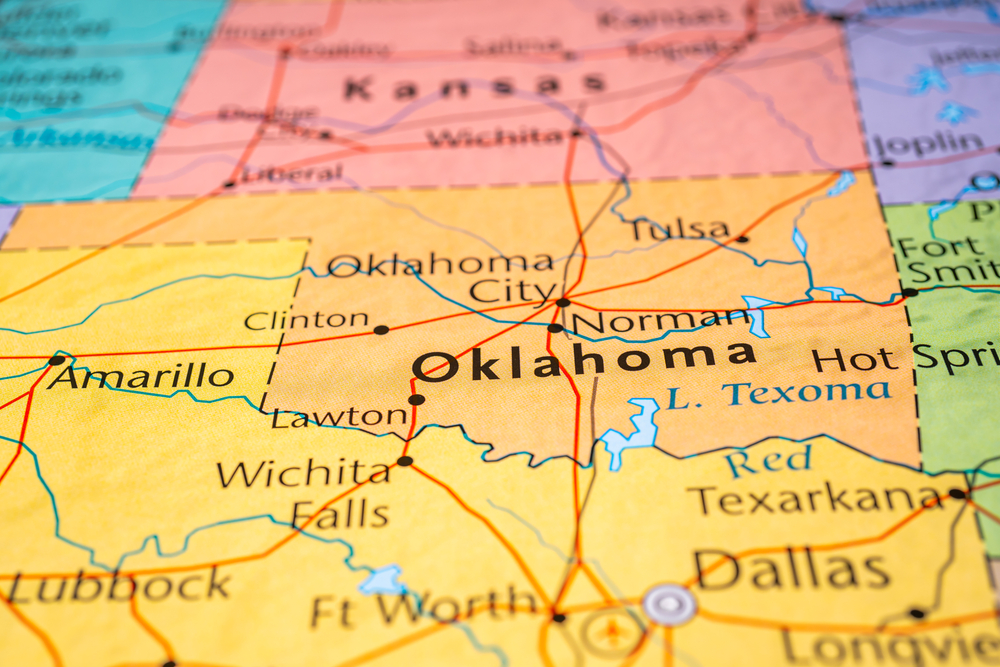Sexual abuse cannot be healed on a specific timeline. If you’re a survivor of sexual abuse in Oklahoma, you deserve to know exactly how long you have to take legal action against a perpetrator and, where the facts support it, against the institutions that allowed the abuse to happen.
Oklahoma’s statutes of limitations for abuse cases can be confusing because the deadlines are different for childhood abuse and adult sexual assault, and the timelines also change depending on who you’re suing. Let’s break it down in plain language so you can understand your rights and make the best, informed decisions.

Key Takeaways About Oklahoma’s Filing Deadlines
- Childhood sexual abuse (claims against the perpetrator): You generally can file a civil claim until your 45th birthday.
- Childhood sexual abuse (claims against institutions): Claims against a school, church, youth group, employer, or similar entity usually must be filed within 2 years of the abuse, but that clock doesn’t start until the survivor turns 18.
- Adult sexual assault: Civil claims directly against the perpetrator based on the crimes of assault and battery typically face a 1-year deadline. Negligence-based injury claims (for example, against a business or property owner) are usually 2 years.
- No statewide “lookback” window: Oklahoma has not passed a law that broadly revives already-expired civil claims for sexual abuse.
- Discovery rule: Oklahoma courts have been cautious about using the delayed-discovery theory to extend deadlines in sexual abuse cases. Survivors cannot assume the clock starts when they first connect the abuse to their injuries.
- Special rules to know: Oklahoma law adds unique provisions in child-abuse cases, including an “objective, verifiable evidence” requirement and limits on suing a deceased perpetrator unless there was a qualifying conviction.
How Oklahoma’s Civil Deadlines Work
Childhood Sexual Abuse (abuse before age 18)
1 - If you’re suing the individual who abused you
Oklahoma law, Okla. Stat. tit. 12, § 95(6), gives survivors an extended time to file a civil claim. You may file a civil action for abuse until your 45th birthday. You do not have to file as soon as you turn 18 because the law recognizes that most survivors need years before they’re ready to come forward.
This law has two important built-in rules:
- Objective evidence requirement. To recover damages, your case must be supported by objective, verifiable evidence (for example, records, communications, corroborating witnesses, contemporaneous disclosures, or other documentation).
- A series of incidents. If the abuse involved multiple episodes over time, you do not have to prove which specific act caused which specific harm; the law accounts for continuing abuse.
There’s also a narrow bar that can block suits against a deceased perpetrator unless that person was convicted of a qualifying sexual offense against you. If the abuser has passed away, you should speak with counsel promptly to evaluate whether your claim can proceed.
2 - If you’re suing an institution that enabled the abuse
When the person who abused you was connected to an institution like a school, church, camp, youth organization, employer, or other public or private entity, and that entity owed you a duty of care, the filing deadline is shorter. In most cases, you must file within 2 years.
However, if the abuse happened while you were a minor, that 2-year period is tolled (paused) until you turn 18. After your 18th birthday, the 2-year clock begins to run, so you have until your 20th birthday to file a lawsuit.
Here’s a practical example: You suffered abuse by a coach when you were 14. You turn 18 on May 1, 2026. Your civil claim against the school/district (or private league) must usually be filed by May 1, 2028.
If the entity is a public body (like a public school district or state facility), there are additional notice and filing steps under the Governmental Tort Claims Act (GTCA). Generally, you must give written notice within 1 year of the event, then the government has 90 days to approve or deny the notice, and you typically have 180 days after a denial (or deemed denial) to file suit.
These GTCA rules can intersect with the timelines above, so you’ll want an experienced attorney to calendar both the statute of limitations and the GTCA notice/filing deadlines together.
Adult Sexual Assault (abuse occuring at age 18 or older)
If the assault happened when you were an adult, the deadline depends on the type of claim:
- Direct claims against the perpetrator for assault or battery: Typically 1 year from the incident.
- Negligence-based claims, for example negligent security, negligent hiring/retention/supervision, premises liability): Generally falls into a 2 year deadline category.
Because these are short windows, adult survivors should talk with a dedicated abuse lawyer as soon as possible, even if you’re still evaluating whether to move forward. An attorney can also assess whether any other causes of action (such as intentional infliction of emotional distress) fit the facts and which filing period applies to those claims.
Discovery Rule and Other Tolling
Some states broadly allow the statute of limitations “clock” to start when a survivor discovers the connection between abuse and later injuries. Oklahoma is more restrictive. While the discovery rule exists in certain contexts, Oklahoma appellate decisions have declined to broadly apply delayed-discovery for repressed-memory childhood-abuse claims.
This means you should not rely on discovering the harm later to save an otherwise late filing. To protect your legal rights, reach out for individualized legal advice about your dates as soon as you can.
For childhood-abuse claims against institutions, the law expressly pauses the two-year window until age 18. After that, time generally runs on a normal schedule. For claims against the perpetrator, the outer limit is the survivor’s 45th birthday, subject to the special constraints noted above.
Does Oklahoma Have a “Lookback Window”?
A lookback window is a temporary law that revives previously expired claims for a set period of time. While many other states have allowed a lookback window for survivors of sexual abuse, Oklahoma has not enacted a revival window for expired civil sexual-abuse claims statewide.
Lawmakers have considered various reforms over the years, and filing deadline proposals do surface, but as of September 30, 2025, there is no open window for reviving time-barred abuse claims in Oklahoma.
Who You Can Hold Liable for Abuse Claims
Depending on the specific facts of the claim, survivors can take legal action against:
- The perpetrator of intentional torts such as battery and assault.
- Institutions that enabled or failed to prevent the abuse (for example, entities responsible for negligent hiring, retention, supervision, or security).
- Property owners/businesses that failed to provide reasonable safety measures (premises liability).
- Government entities (public schools, state-run facilities), subject to the GTCA’s extra notice and filing requirements and statutory damages caps.
If multiple defendants share responsibility, filing against all appropriate parties can expand your paths to accountability and provide more options for compensation.
What Compensation Can I Request?
Every case is unique, but civil lawsuits can pursue compensation for:
- Therapy, counseling, medications, and other medical care
- Lost income and diminished earning capacity
- Pain and suffering, emotional distress, and loss of enjoyment of life
- In appropriate cases, punitive damages may be awarded to punish especially wrongful conduct
Attorneys also work to secure non-monetary relief where available, such as policy changes, institutional training commitments, and public acknowledgment of wrongdoing, though these remedies are typically negotiated rather than ordered.
How to Protect Your Rights Right Now
- Talk to a survivor-focused lawyer as soon as you are able, even if you’re unsure about suing. Understanding your deadline and overall legal rights is the safest first step.
- Preserve evidence. Save texts, emails, social media messages, journals, calendars, IDs, photos, school or employment records, or anything that can corroborate where you were and who was responsible.
- Consider therapy or support groups. Healing support and legal action can move at your pace; a trauma-informed team will respect your timeline.
- If a public entity is involved, act fast. GTCA notice rules are unforgiving, and an attorney can help you meet those dates while you focus on care and safety.

FAQs About Oklahoma Filing Deadlines
Can I file an abuse lawsuit anonymously in Oklahoma?
Courts can allow filing under a pseudonym (for example, “Jane Doe”) in appropriate cases to protect a survivor’s privacy. Whether you can proceed anonymously depends on case-specific factors and the judge’s discretion. Your attorney can file the proper motion and propose protective orders to limit the disclosure of sensitive information.
What if the perpetrator has died?
Oklahoma law adds a unique constraint: civil suits against a deceased perpetrator (or their estate) are generally barred unless the perpetrator was convicted of a qualifying sex crime involving you. If the abuser has passed away, talk to a lawyer immediately to evaluate whether other defendants (for example, institutions) can be held accountable and whether any exceptions apply.
Do I have to report to the police to file a civil case?
No. Police handle criminal cases, which are separate from a civil lawsuit. You can pursue civil accountability even if you never reported the abuse or if criminal charges were never filed (or did not lead to a conviction). That said, if there is an open criminal investigation, your civil attorney will coordinate timing so your civil action doesn’t interfere with prosecutors or your safety plan.
How do deadlines work if the abuse happened on government property or at a public school?
In addition to the civil statute of limitations, Oklahoma’s Governmental Tort Claims Act requires written notice within 1 year of the loss. The government has 90 days to respond; if it denies (or does not respond), you typically have 180 days to file suit. These steps operate on top of the regular limitations periods, and missing them can be fatal to your claim, so get legal help early.
I moved out of Oklahoma—does that change which deadline applies?
Usually, the civil statute of limitations of the state where the abuse occurred controls, though there are exceptions and conflicts-of-law nuances. If parts of your story span different states, a skilled attorney can analyze where to file and which state’s deadlines apply.
The Team at File Abuse Lawsuit Can Answer Your Questions and Provide Legal Help
Choosing whether to file a sexual abuse lawsuit is deeply personal. Our role is to give you clear, compassionate guidance and to shoulder the legal burden so you can focus on healing. We’ll listen, protect your privacy, and move at your pace.
Call File Abuse Lawsuit at (209) 283-2205 for a free, confidential consultation as soon as you can.